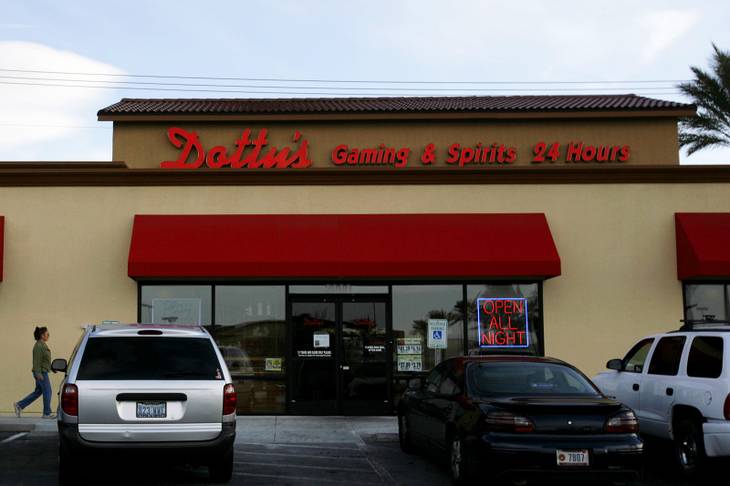A third lawsuit has been filed over efforts by regulators to rein in the Dotty’s slot machine parlor business model in Nevada.
The Nevada Gaming Commission on Aug. 25 adopted rules requiring small bar-like gaming operators to have a permanent bar with seating for at least nine customers and a restaurant with seating for at least 20 people, among other things.
This rule was imposed after competitors -- traditional taverns and big locals casinos -- complained Dotty’s and similar establishments were running slot parlors where gaming is their main business, harming competitors that had invested in amenities such as bars and restaurants. Dottty's is known for having freestanding slot machines grouped together, as opposed to bar-top slots common at traditional taverns.
The competitors noted that since 1981, "restricted" slot machine locations such as bars and convenience stores were supposed to operate with gaming revenue being incidental to the primary business.
Nevada Restaurant Services Inc., owner of Dotty’s, has complained it may have to spend $6 million remodeling its approximately 60 properties around the state.
Last week, attorneys for Dotty’s sued the state and the Nevada Gaming Commission in Clark County District Court, charging the rule change requiring remodeling of its parlors violates its constitutional rights.
The lawsuit complained that over the years beginning 15 years ago, the Gaming Commission has approved scores of Dotty’s licenses and in reliance on these approvals "Dotty’s has invested tens of millions of dollars in its approved taverns statewide."
The "retroactive provisions" adopted by the Gaming Commission on Aug. 25 "are intentionally and blatantly anti-competitive," charges the new lawsuit.
They are "the first known commission regulations to have a retroactive effect component" where there was no issue about health, safety or the welfare of the public, the lawsuit charges.
The suit also complains the rules violate Gov. Brian Sandoval’s Jan. 3 executive order freezing proposed regulations through Jan. 1, 2012.
Attorneys for the Gaming Commission have not yet answered the lawsuit, which seeks a court declaration finding the Gaming Commission rule is invalid.
The new suit is on top of two lawsuits pending in federal court in Las Vegas over similar issues.
They were filed this spring by Dotty’s and Jackpot Joanies against the Clark County Commission.

